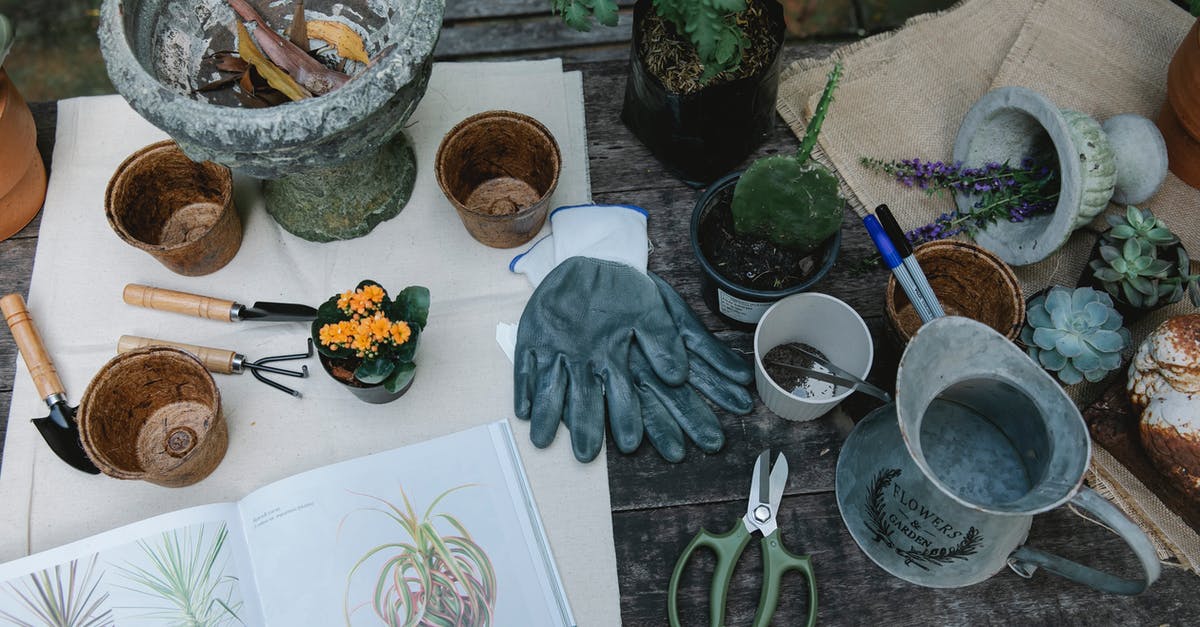Can I learn to like wine?

Wine, especially combined with the right food, seems to be a great deal among gourmets. I'd love to enjoy those highly-praised combinations too, but unfortunately, although I'm 22 years old by now, I still don't like the taste of wine at all.
Can I learn to like wine? Are there any methods or tips how to train my sense of taste? Or is it a process that will simply take its time, and the only thing I can do is "waiting to become older"?
Best Answer
There's no point drinking wine and not enjoying it. The point of wine with food is that, if you enjoy the wine and enjoy the food, you'll enjoy both together even more. But if you don't enjoy the wine, you'll enjoy the food less if you force yourself to drink wine with it.
Is there anything you do like about wine? If not, I suggest you ignore it for the time being. If you're curious, you'll come back to it in your own time, whenever you're ready. If you're not, it doesn't matter: there's nothing wrong with not liking wine.
If there is something you like about wine, for example, the aroma or some component of the taste, I suggest you keep trying it but don't force yourself. Taste it every now and again and, if you still don't like it, wait until you want to try it again. This is what I did with whisky. As a teenager / young adult, I really liked the smell of whisky but didn't like the taste – in hindsight, it was probably the alcohol content that was the problem. Every now and again I'd have a taste from my father's glass or from somebody I was drinking with at a bar. For a long time, I didn't like it but I still liked the aroma so I kept trying a couple of times a year. Eventually, I started drinking it.
A few things to bear in mind about wine.
Avoid cheap wine and don't waste your money on expensive wine that you won't appreciate. Low price isn't a guarantee of low quality and high price isn't a guarantee of high quality but it's worth spending, say, twice the price of the cheapest bottle if you're at the supermarket. That's likely to lift you into wines that you're disliking because you dislike wine, rather than because they're bad.
Red wine, poured straight from the bottle often tastes rather harsh. Open the bottle half an hour or so before you want to drink it and let it sit in the glass for a couple of minutes before you drink.
Wines (especially red) with just one or two grape varieties named on the bottle usually have simpler, less challenging tastes.
Sweeter white wines will probably be more appealing to you than drier ones. Try something like a sauvignon blanc or unoaked chardonnay, rather than, say, a pinot gris/pinot grigio. Riesling can be anywhere from super-sweet to mouth-puckeringly dry depending on what the winemaker did.
Supermarkets in the UK sell quarter-bottles of decent-but-not-amazing wine. That's a good way to try lots of different styles without having to spend a lot of money or feeling that you're wasting a whole bottle if you don't like it.
This suggestion is heresy but... consider chilling red wine. Chilling tends to make harsher flavours less noticeable. If you find you like it chilled, try chilling it less.
Ask a wine merchant. Specialist wine merchants love to talk about wine. Don't be embarrassed to walk into one of their stores and say, "Hi. I like the idea of wine but I've never found a wine I like drinking." Their eyes will light up because this is a challenge to them to use their skills to make a customer really happy. If you buy a couple of bottles on their recommendations, you'll be their favourite customer of the day, I guarantee. Doubly so if you go back a week later after liking what you bought. Go for it!
Pictures about "Can I learn to like wine?"



Quick Answer about "Can I learn to like wine?"
Fortunately, learning to like wine is actually quite simple. Although there is a vast variety of wines from which to choose, from sweet and fruity to bold and rich, learning some of the basic terminology and styles of wine can help you narrow down the flavors you enjoy.How do I get myself to like wine?
Fortunately, acquiring a taste for wine is much easier than most people believe.Do you get used to the taste of wine?
Fortunately, acquiring a taste for wine is easier than you think. It's mostly a matter of letting your taste buds become accustomed to the flavors that characterize wine. After all, there are so many different varieties, there's something out there for everyone!How does a wine taste for beginners?
How to Taste Wine:Adele - I Drink Wine (Official Lyric Video)
More answers regarding can I learn to like wine?
Answer 2
Yes, you can. In fact, red wine is notorious to be an acquired taste. And a big part of what humans like (not just in food) is dependent on familiarity. It would be rather unusual (but not impossible) that the usual wine tastes are so offputting to you that you cannot deliberately let it grow on you.
But just because you can, it doesn't mean you should. There is no directive telling you to learn to like wine. You are not going to lose your gourmet club card if you don't like wine, in fact there is no gourmet club card.
If it is especially important to you to conform to the image of a gourmet, and in your personal image a gourmet must love wine, you can go through the learning process. For any other purpose, you're better off consuming as much (or as little) wine as your taste buds tell you to, and spend your energy on other things.
I'd love to enjoy those highly-praised combinations too
Enjoyment is enjoyment. You surely already enjoy some foods, maybe a ripe, fragrant strawberry bursting with sweet juice. If you learn to love wine, you will enjoy wine too - but it won't be qualitatively or quantitatively different from the enjoyment you're getting right out of a strawberry. You will have the experience of drinking wine (which you already know) together the experience of pleasant emotions such as delight (which you already know) but not a unique new experience.
Summary: it's possible, but not easy, and while it has advantages, they may not be the ones you envisioned. If you still want to do it despite it, go for it!
Answer 3
Waring: Anecdote ahead (which will swerve into a salient point, I promise)
I grew up hating coffee. I didn't really like hot drinks in general; but the idea of forcing down this bitter or acidic concoction with my breakfast (even with sugar, cream, etc) had NO appeal to me. At the time, your morning cup of coffee in the typical US household probably meant Chock Full o'Nuts or Folgers. Going out, it came free with your meal, and you ordered it with cream and/or sugar. That was about it.
Then… sometime in the late 80s, a friend offered me something like a "Mocha Frappuccino." Never heard of it. You could hardly call that "drinking coffee" — it was more milk shake than anything else — but I actually found the experience somewhat pleasing. Not wanting to bring out the blender every time to make one of these things, I soon learned that a mixture of half coffee, half cream (with caramel, chocolate, or other flavorings with ice) was a pretty good substitute. Eventually I could cut back on the cream (and the calories that come with it) by learning to make better, smoother coffee. Even though the coffee drinks were getting "stronger", I still found it pretty good. Eventually I developed an appreciation for the coffee itself — and soon the art (and the challenge) of making a really. Good. Cup. Of. Coffee. And so it goes.
The point being —
If you feel somehow unfulfilled for not having developed a "taste for wine", try a wine drink that you may like. Wine is a diverse subject with a lot of range. You might start with a sweet sparkling wine or champagne you can mix with fruit juice (mimosas are something generally enjoyed by even non-drinkers). Perhaps something completely fruity like an Arbor Mist Strawberry White Zinfandel (low alcohol, high fruit, found in almost any grocery store). If that's not to your liking, try a wine-based cocktail like a wine cooler or spritzer. Now we're getting into "anyone can drink" territory.
If you develop a taste for anything I mentioned above, you may just develop a taste for the main ingredient: the wine. You can start experimenting in the sweeter wines (Barefoot Moscato; soooo sweet it may debunk what you think of as "wine"). Eventually you may find something palatable and work your way back towards what we think of as a traditional table wine.
If you never learn to enjoy wine, I wouldn't fret over it too much. Wine is meant to be enjoyed… but if it is not something to your taste, stick to the culinary pleasure that you do find pleasing. Enjoy!
Answer 4
You might be able to learn to like wine, but I wouldn't try to force it.
From personal experience, I did not used to like alcohol of any kind, and I thought it would be that way forever - but it turns out, for me at least, that it boils down to some wine just doesn't do anything for me.
What I found helped was going on a wine-tasting tour with my parents. By doing that, I didn't have to pay for the wine myself, and I could try several different things to see if I liked any of them. Some I didn't, but some hit home for me, and even when I didn't like the wine, they always had snacks and nice vineyard views to enjoy anyway.
Also keep in mind there are different kinds of wine, and you may just not have tried the type you like. The basic ways wines are divided are by color and 'flavor'*
Color
- Red - Port, Merlot, and Cabanet Sovignot are all red wines. They're made with red grapes that have the skin on, and can be blended with other dark-colored fruits like blackberries, cherries, and currants. Reds tend to go well with red meat for dinner, and with chocolate and red berry fruits for dessert.
- White - Chardonnay, Reisling, Pinot Grigio are all white wines (though they're more yellowish in color). They're made with white grapes and grapes without the skin on, and can be blended with other light-colored fruits like pears and apples. White wine tends to pair well with fish and poultry for dinner (as well as pork), and goes well with cheesecake and other cheese-desserts.
- Rose - A blended wine made with different types of fruits from red and white wines, and tend to have a pinkish color as a result. The food that rose wines go well with varies considerably.
Flavors
- Dry - Tends to have a more bitter taste, leaving your mouth 'dry' afterwards. Champagne is usually dry, as are most dinner wines. Both red and white wines can be dry. Dry wines tend to be used for dinner.
- Sweet - Sometimes called 'dessert' wines, tend to have a higher concentration of mixed fruits other than grapes. Again, can be in both red and white. Rose wines tend to be sweet, but can occasionally be dry. Sweet wines go better with desserts.
Keep in mind that though certain wines are 'recommended' for certain meals, this is all trumped by personal flavor preference - if you prefer sweet red wine, there's nothing wrong with having it with fish. If you don't like the taste of red wine with fish, drink some water between each bite/sip.
But, some people just don't like wine. It's okay - wine's not for everyone. You can 'acquire' a taste for certain things, but if you don't really enjoy it, don't drink it.
*Note that though I call it 'flavor', red, white and rose wines all have a distinct flavor too.
Answer 5
Some people never learn to love wine, or beer for that matter, so there is no foolproof way to teach yourself to love something.
Perhaps I can offer a few tips for someone starting out:
- Get quality. If your first tastes of wine are of the low quality products often sold in bars or club houses you are less likely to get a taste for them. They tend to be very sour or tangy and thus not a very good point to start from.
- Start with "friendly" wines. An oak-aged Bordeaux can taste really harsh to someone not accustomed to drinking wine. Why not start with for instance a Sauternes or another sweet wine, served with a dessert? For red wines I would suggest starting out with 100% Merlot wines or a slightly chilled Pinot Noir and then slowly building up towards the stronger varieties.
- Drink wine with a dish and make sure the wine-dish combination is the right one. I still find myself sometimes not finishing a wine after I'm done eating the dish it came with.
Good luck!
Answer 6
I have yet to find any food or drink taste that cannot be acquired. Generally speaking, the things we refer to as "Acquired tastes" such as alcohol, black coffee, maybe a dark bitter chocolate - these are generally just things which many do not have tastes for innately (they have to be learned). That is not to say, however, that these tastes are anymore "acquirable" than any other, simply that you probably don't start off life enjoying them. They are just as easy to acquire as any other taste, and that simply takes exposure.
I used to love the smell of coffee, hated the taste, and drank it black every day for two weeks and then started to enjoy it enough that I was no longer forcing myself, I was actually excited to get my cup of coffee for the day.
I'll say the same thing for something that isn't traditionally thought of as an "acquired taste", sweet potatoes - I used to hate sweet potatoes for most of my childhood, but eventually decided that there's no reason to cut good food out of my diet simply because I haven't eaten it enough to acquire the taste. These days I love coffee, wine, and sweet potatoes. Come to think of it, there are now no foods I'm aware of which I do not enjoy. I have successfully acquired every taste in food that I've come across.
I wouldn't listen to those telling you not to try and acquire the taste just because you weren't born a wine-lover. I would argue that nobody is born with any taste for alcohol, and if you're going to drink poison, your body has to get used to it. (I don't say poison because of any distaste for wine, simply that alcohol is, in fact, a poison to humans). If your end goal is to consume something you don't innately enjoy, give it time and exposure and you'll love it before you know it. Cheers!
Answer 7
Find a wine tasting evening somewhere near you. Try them all, spit it out, don't be shy. Say what you don't like and get them to bring something else. If you like it, write the name down (or photograph the label). You might even meet other people with the same interest.
You will also meet a lot of poseurs pretending to know a lot about wine. You can learn how to counter them by saying the stock phrases - which I don't know in English.
Answer 8
Wine is not unlike any other taste you are not raised on: beer, cigarettes, coffee.
If you are interested in immersing yourself into wine culture, try training wheels. Most people start drinking coffee by beginning with flavors, like hazelnut and french vanilla. Cigarettes and beer usually have more of a peer-pressure mentality. Popular first cigarettes are menthol flavored. A beer drinker's first style is usually a watered, light beer.
Eventually your tastes will become curious. You will read on topics that are important to you. And so it goes.
With wine, sweet and inexpensive are a good start. Drink enough of these and your preferences will emerge.
Sources: Stack Exchange - This article follows the attribution requirements of Stack Exchange and is licensed under CC BY-SA 3.0.
Images: Kampus Production, Gary Barnes, Gary Barnes, Gary Barnes
